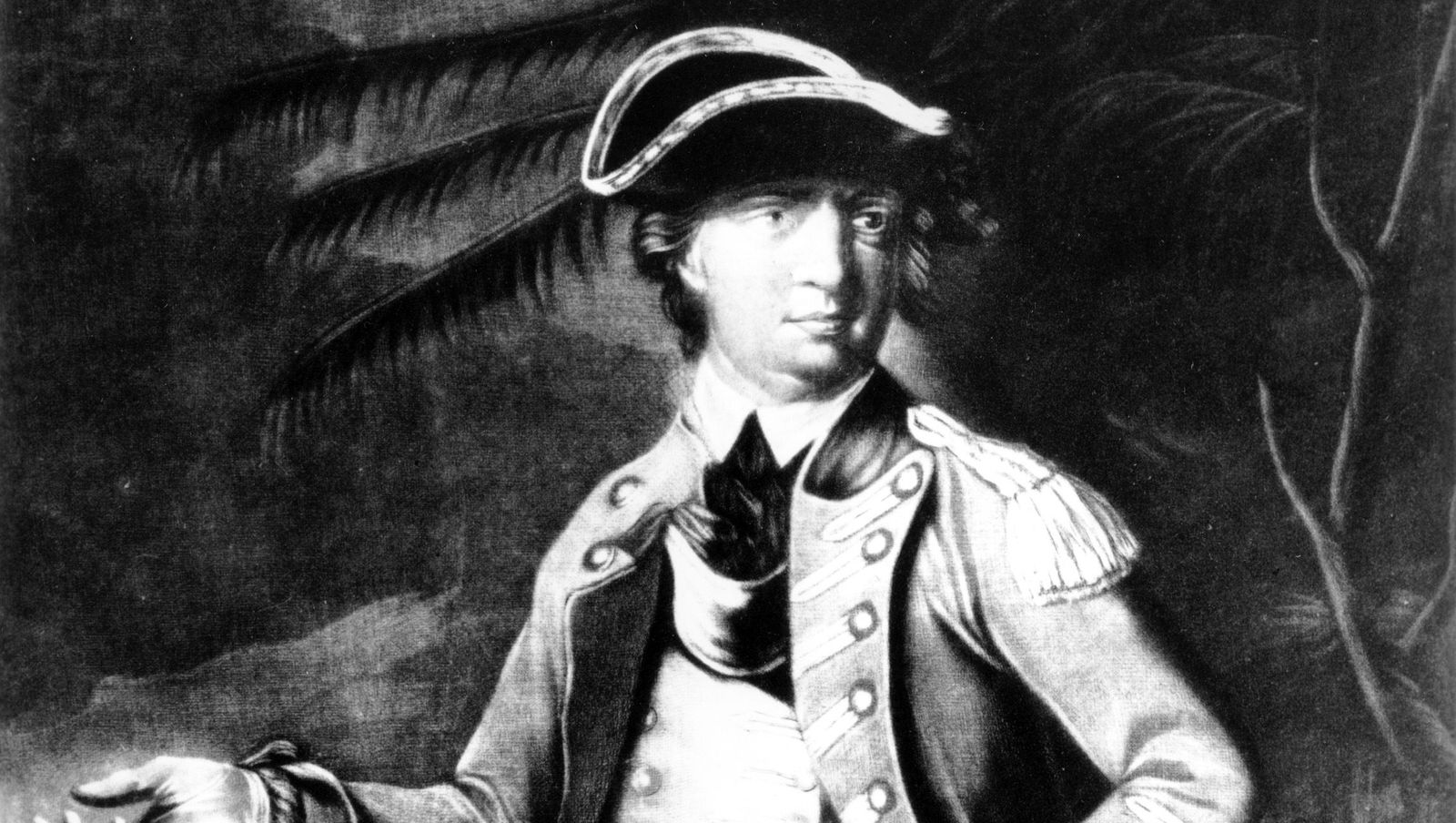Portrait of Gen. Benedict Arnold by an unknown artist. The American soldier joined the colonial forces during the War of Independence, 1775-83, took part in the unsuccessful siege of Quebec, and ultimately fled to the British lines after a failed plot to surrender West Point. He’s the most famous traitor in U.S. history. (Photo: Library of Congress, AP)
By: Rick Hampson – usatoday.com – July 18, 2018
Traitor!
Few words are defined so narrowly in law and used so commonly in anger, from politics to the playground.
Every nation has an infamous traitor. In Norway, he’s Quisling, the Nazi collaborator. In Britain, he’s Kim Philby, the Soviet mole. In America, he’s always been Benedict Arnold, the Continental Army officer who plotted to turn West Point over to the Redcoats in the Revolutionary War.
And now, after a news conference Monday in Finland, the term is being used in relation to the 45th president of the United States. Donald Trump, master of the political insult, finds himself on the receiving end.
It’s not surprising, said Eric Arnesen, a George Washington University political historian: “It’s the word that comes to mind after what he did, with Vladimir Putin standing next to him. It was so jaw-dropping that people are grasping for words to capture their sense of disbelief.’’
Not everyone thinks it’s the right word. “When I think ‘traitor,’ I think Benedict Arnold. There was evidence – letters, witnesses,’’ said Phillip Henderson of The Catholic University of America, an expert in political leadership. “To use the term so loosely discredits people. We should be more careful how we use it.’’
After a private meeting with Putin, Trump questioned his own intelligence agencies’ findings that Russia meddled, to his benefit, in the 2016 U.S. election. And Trump seemed to accept Putin’s insistence that Russia was blameless – or to at least give the Russian the same credibility as America’s intelligence establishment.
Although Trump tried Tuesday to retreat – albeit only by claiming that when he said “would” he meant to say “wouldn’t” – the damage was done.
Former CIA director John Brennan wrote that Trump’s news conference commentary “rises to & exceeds the threshold of ‘high crimes & misdemeanors.’ It was nothing short of treasonous.”
John O. Brennan✔
@JohnBrennan
Donald Trump’s press conference performance in Helsinki rises to & exceeds the threshold of “high crimes & misdemeanors.” It was nothing short of treasonous. Not only were Trump’s comments imbecilic, he is wholly in the pocket of Putin. Republican Patriots: Where are you???
Thomas Friedman, the veteran foreign affairs correspondent for The New York Times, saw “overwhelming evidence that our president, for the first time in our history, is deliberately or through gross negligence or because of his own twisted personality engaged in treasonous behavior.’’
“OPEN TREASON” cried page one of the New York Daily News. Various Twitter hashtags – #Treason, #TreasonSummit, #TraitorTrump – formed a collective “Amen!”
Treason is the only crime defined in the Constitution. That’s because in 18th century England, it was at times liberally interpreted by the Crown. To avoid such abuses, treason was specifically restricted in Article III as consisting “only in levying War against (the U.S.), or in adhering to (its) Enemies, giving them Aid and Comfort. No Person shall be convicted of Treason unless on the Testimony of two Witnesses …. or on Confession in open Court.’’
While there is no declared war between the U.S. and Russia, the U.S. hasn’t been in such a war since 1945. But the Russians could be defined as “enemies.’’ And cyberwar, apparently Russia’s preferred style of attack, may be the one of the future.
The limited, precise definition of treason has never prevented its general application. In his biography of Alexander Hamilton, Ron Chernow writes that in the early 1790s, Hamilton and President George Washington “regarded much of the criticism of their administration as disloyal, even treasonous.’’
On the other side of the political fence, Thomas Jefferson said in 1791 that any Virginia official who cooperated with Hamilton’s proposed national bank was guilty of treason against the commonwealth and should be executed.
There have been only a few dozen federal treason trials, and even fewer convictions. Former Vice President Aaron Burr, accused in 1807 of conspiracy to steal land in the West, was found not guilty. His historic villainy stems not from treason but from having killed Hamilton in a duel.
Jefferson Davis, president of the Confederacy, was indicted for treason at the end of the Civil War but never tried, in part because it was unclear he’d be convicted. He spent only two years in custody.
Some presidents have at least flirted with treason. In 1968, Richard Nixon’s presidential campaign reached out to South Vietnam through back channels to urge its negotiators not to agree to a peace deal with North Vietnam that was being pressed by President Lyndon Johnson.
Peace would have helped Nixon’s opponent, Vice President Hubert Humphrey. In any event, the war continued another five years and cost tens of thousands of American and Vietnamese lives.
‘Treason’ in our time
Treason has more typically been a political than a criminal offensive.
To see the remainder of this article, click read more.
Source: Treason: Narrow legal definition, widespread political use
 Listen Online
Listen Online Watch Online
Watch Online Find a Station in Your Area
Find a Station in Your Area









 Listen Now
Listen Now Watch Online
Watch Online
